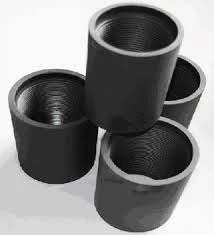- Afrikaans
- Albanian
- Amharic
- Arabic
- Armenian
- Azerbaijani
- Basque
- Belarusian
- Bengali
- Bosnian
- Bulgarian
- Catalan
- Cebuano
- Corsican
- Croatian
- Czech
- Danish
- Dutch
- English
- Esperanto
- Estonian
- Finnish
- French
- Frisian
- Galician
- Georgian
- German
- Greek
- Gujarati
- Haitian Creole
- hausa
- hawaiian
- Hebrew
- Hindi
- Miao
- Hungarian
- Icelandic
- igbo
- Indonesian
- irish
- Italian
- Japanese
- Javanese
- Kannada
- kazakh
- Khmer
- Rwandese
- Korean
- Kurdish
- Kyrgyz
- Lao
- Latin
- Latvian
- Lithuanian
- Luxembourgish
- Macedonian
- Malgashi
- Malay
- Malayalam
- Maltese
- Maori
- Marathi
- Mongolian
- Myanmar
- Nepali
- Norwegian
- Norwegian
- Occitan
- Pashto
- Persian
- Polish
- Portuguese
- Punjabi
- Romanian
- Russian
- Samoan
- Scottish Gaelic
- Serbian
- Sesotho
- Shona
- Sindhi
- Sinhala
- Slovak
- Slovenian
- Somali
- Spanish
- Sundanese
- Swahili
- Swedish
- Tagalog
- Tajik
- Tamil
- Tatar
- Telugu
- Thai
- Turkish
- Turkmen
- Ukrainian
- Urdu
- Uighur
- Uzbek
- Vietnamese
- Welsh
- Bantu
- Yiddish
- Yoruba
- Zulu
api 5ct casing coupling
Understanding API 5CT Casing and Coupling Key Components in Oil and Gas Industry
The oil and gas industry relies heavily on specialized materials and standards to ensure safety and efficiency in drilling operations. One of the essential standards is the API 5CT specification, which pertains to casing and tubing used in the extraction of oil and natural gas. This article will explore the significance of API 5CT casing and coupling, their features, and their critical role in the industry.
What is API 5CT?
API 5CT is a specification developed by the American Petroleum Institute (API) that sets the standards for the design and manufacturing of casing and tubing for use in the petroleum and natural gas industries. Casing is a series of pipes that are inserted into the drilled hole to stabilize and protect the wellbore, while coupling refers to the sections used to connect two pipe ends. The API 5CT specification ensures that these components meet specific criteria for materials, dimensions, and quality, thus ensuring their reliability during operations.
Importance of Casing and Coupling
Casing serves multiple purposes in a drilling operation. It prevents the collapse of the wellbore, isolates fluids in the wellbore, and protects groundwater from contamination. The proper installation of casing is critical, as it forms a barrier between the well contents and the surrounding environment. Moreover, casing systems are integral in managing pressures within the well, especially in high-pressure environments.
Couplings, on the other hand, are vital for connecting sections of pipe securely. A good coupling must transmit loads effectively, maintain pressure integrity, and withstand harsh conditions found downhole, such as temperature changes and chemical exposure. API 5CT couplings are designed to meet these rigorous demands, ensuring that the casing remains intact during drilling and production.
api 5ct casing coupling

Materials and Specifications
API 5CT casing and couplings are typically made from a variety of steel grades, with the most common being J55, K55, N80, and P110. Each grade has unique characteristics that make it suitable for different applications
1. J55 and K55 These are commonly used for relatively low-pressure environments. They offer good strength and moderate corrosion resistance. 2. N80 This grade is often used in sour gas wells due to its enhanced strength and resistance to hydrogen sulfide. 3. P110 P110 casing is suitable for high-pressure applications, providing the necessary strength and durability for challenging drilling environments.
Manufacturing Process
The manufacturing of API 5CT casing and couplings involves several steps, including steel production, hot rolling, and threading. Quality control is paramount throughout the entire process to ensure that the final product meets the stringent specifications set forth by API. This includes checks for dimensional accuracy, mechanical properties, and surface quality.
Conclusion
API 5CT casing and coupling represent crucial elements in oil and gas exploration and production. Their role in maintaining well integrity, managing pressures, and preventing contamination cannot be overstated. By adhering to API standards, manufacturers ensure that these components are reliable and safe for use in some of the most demanding environments on Earth. As the industry continues to evolve, the importance of high-quality casing and coupling remains a cornerstone of safe and efficient oil and gas extraction. Understanding and utilizing API 5CT products is essential for anyone involved in the drilling process, reinforcing the industry's commitment to safety and reliability.
-
Tubing Pup Joints: Essential Components for Oil and Gas OperationsNewsJul.10,2025
-
Pup Joints: Essential Components for Reliable Drilling OperationsNewsJul.10,2025
-
Pipe Couplings: Connecting Your World EfficientlyNewsJul.10,2025
-
Mastering Oilfield Operations with Quality Tubing and CasingNewsJul.10,2025
-
High-Quality Casing Couplings for Every NeedNewsJul.10,2025
-
Boost Your Drilling Efficiency with Premium Crossover Tools & Seating NipplesNewsJul.10,2025







